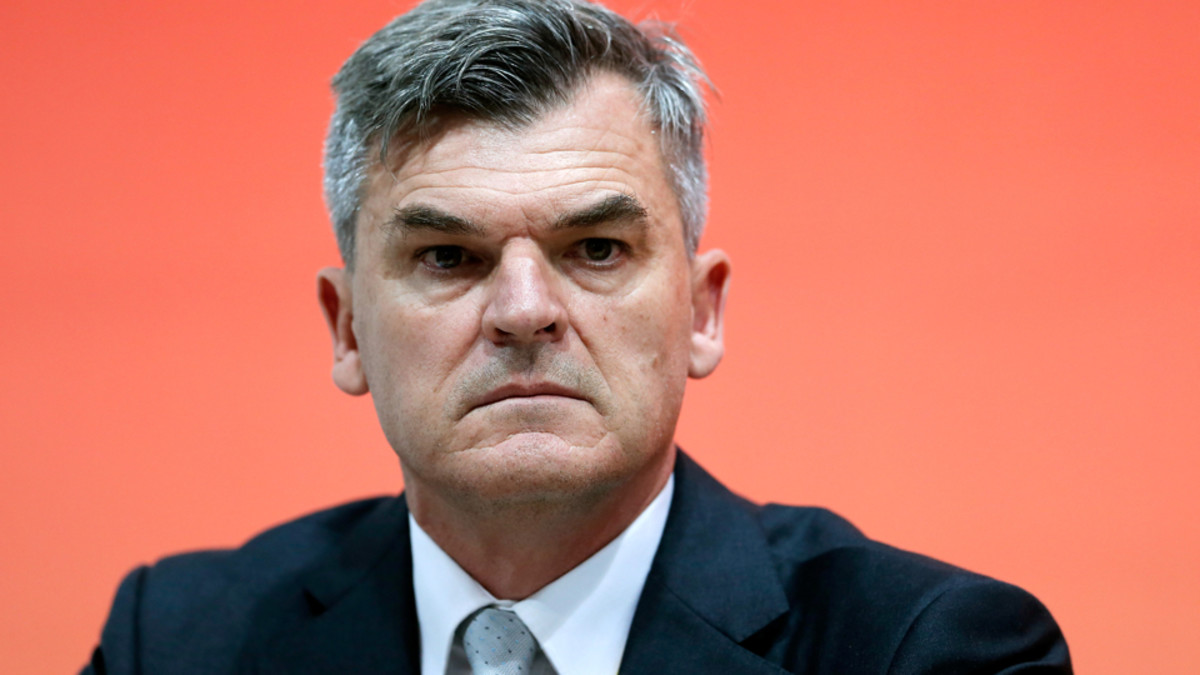IAAF chief steps aside over Russian doping cover-up
IAAF chief of staff Nick Davies announced that he has stepped away from his post while the IAAF ethics committee reviews emails that show he was aware of covered-up Russian doping cases by the IAAF since 2013.
The emails were revealed by French newspaper Le Monde on Monday.
The email was sent to Papa Massata Diack, the son of former IAAF President Lamine Diack, and detailed Davies’ attempt to prepare for backlash from the British press on the IAAF’s handling of doping Russian athletes. Davies said he needed to discuss the plans to strategically reveal positive tests by Russians.
Read the full email below:
Olympic gold medalist Seb Coe succeeded Diack as president of the IAAF after the 2015 World Championships in August. Davies was appointed the director of the president’s office by Coe in September. Since Coe was very influential within the sport, the email shows Davies believed he would be fitting to help address the issues in 2013.
• Report: Ex-IAAF president Lamine Diack confesses to asking Russia for money
Davies issued the following statement on Tuesday:
“In statements over recent days I have underlined that one of my key responsibilities is to manage and promote the reputation of the IAAF. What has become apparent today is that I have become the story. This is not helpful at the current time, with ongoing criminal investigations by the French police, the IAAF’s Ethics Board or WADA - all of whom I have voluntarily offered full assistance to and will continue to do so. In order to demonstrate that I am willing to have all allegations of unethical behavior on my part in 2013 properly and fairly investigated I have referred my emails to Papa Massata Diack in 2013, my statements and the circumstances of the emails to the IAAF Ethics Board. "I have decided to step aside from my role with the IAAF until such time as the Ethics Board is able to review the matter properly and decide if I am responsible for any breach of the IAAF Code of Ethics.”
Russia topped the medal table at the 2013 track and field world championships, which were held in Moscow. The IAAF announced sanctions against 16 Russian athletes in the months that followed the global championship.
“My email to the IAAF’s then marketing consultant Papa Massata Diack, less than a month before the start of the Moscow World Championship, was brainstorming around media handling strategies to deal with the serious challenges we were facing,” Davies said in a statement to BBC. “No plan was implemented following that email and there is no possibility any media strategy could ever interfere with the conduct of the anti-doping process.”
After the findings of an initial report by the World Anti-Doping Agency, Russia was suspended from international competition by the IAAF, which may include the 2016 Olympics in Rio de Janeiro. The second part of the report focusing on Diack and the IAAF is expected to be released next month.
On Monday, Lamine Diack was reportedly hit with new corruption charges linked to doping cover-ups in track and field by French investigators, according to the Agence France Presse.
Diack, 82, is suspected of paying approximately $152,000 to Gabriel Dolle, formerly the IAAF's head of anti-doping who is also charged with corruption. Diack has denied making the payments, which are believed to result in covered-up positive doping tests by Russian athletes.
Massata Diack, Dolle and Valentin Balakhnichev, then president of the Russian athletics, are being investigated by the IAAF's ethics committee and await results from a hearing that took place in London last week. If found guilty, they could face lifetime bans from the sport.
- Christopher Chavez





